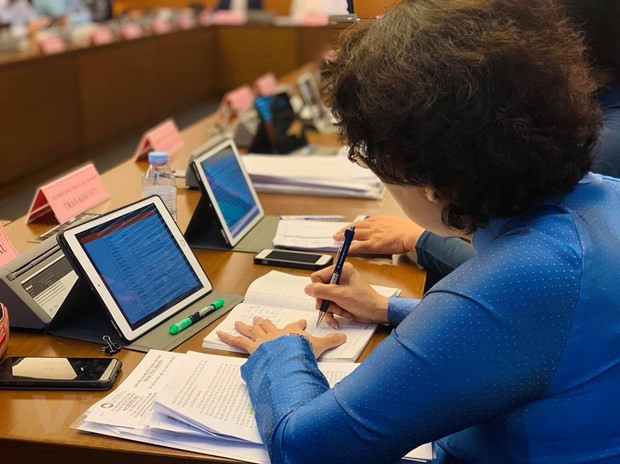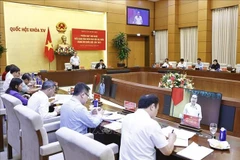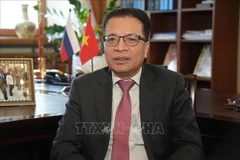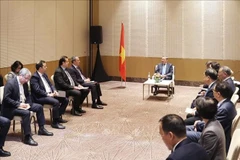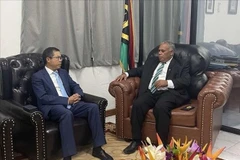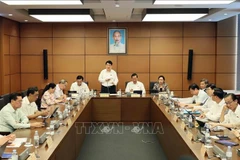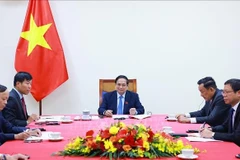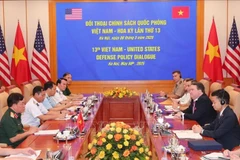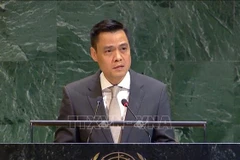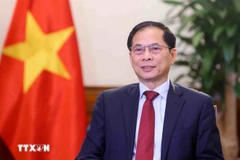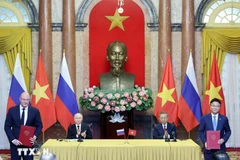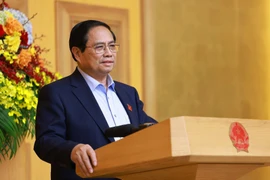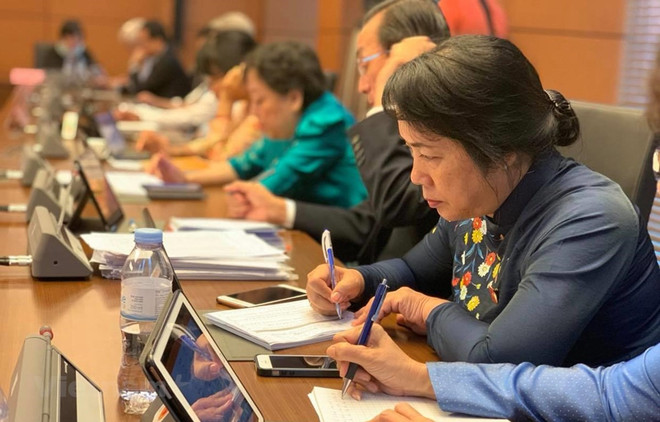 Legislators will gradually familiarise themselves with modern electronic devices in the coming sessions (Illustrative image: VietnamPlus)
Legislators will gradually familiarise themselves with modern electronic devices in the coming sessions (Illustrative image: VietnamPlus)
Hanoi (VNA) – The Industry 4.0 era has shown the strong impact of high technology on the whole world and in every sector as well as activities of administrations at all levels. Vietnam began to lay the cornerstone for an e-parliament in 2019.
The year 2019 was when the National Assembly (NA) of Vietnam applied technology and artificial intelligence (AI) to its meetings for the first time, heralding a completely new period for activities of the State’s supreme supervisory body.
The first steps
At the 7th session of the 14th tenure, held from May 20 to June 14, 2019, the NA trialed the conversion of all audio files into text to help parliamentary leaders chair meetings.
Then NA Secretary General and Chairman of the NA Office Nguyen Hanh Phuc told a press conference ahead of the 7th session that to optimise technology and create the most favourable conditions for deputies, each deputy was given an electronic device equipped with software and AI apps that enables them to access meetings’ documents and even convert audio files into text, making it easier to refer to laws and search for information.
Hong Hanh, a voter in Thanh Xuan Trung ward of Hanoi’s Thanh Xuan district, said the reform helps to not only save printing costs and provide timely information but also improve the performance quality and effectiveness of legislators and the NA as a whole.
In 2020, the sudden appearance of COVID-19 hampered all socio-economic activities, but that was also the time the parliament strongly reformed its activities by organising videoconferences.
At meetings of the NA Standing Committee ahead of the 9th session of the 14th tenure, then NA Chairwoman Nguyen Thi Kim Ngan repeatedly requested enhancing discipline in the State apparatus and not letting the pandemic hinder activities.
The 9th session left a special hallmark as for the first time in its over-70-year history, the Vietnamese legislature met via teleconference in the first two weeks (from May 20 to 29). The NA building in Hanoi was connected with NA deputies’ delegations of all the 63 provincial-level localities.
The NA conducted teleconferencing for the first time, and it was also one of the first parliamentarians in the world to apply this format, demonstrating its responsiveness to the unpredictable pandemic and laying the foundation for reforming parliamentary activities amid the Fourth Industrial Revolution (Industry 4.0).
At that time, then chief of the NA Office Nguyen Hanh Phuc said: “This is a chance for us to prepare for reforms, concurrently saving time, budget and applying technology of the 4.0 era. This session is an important preparatory step to complete the software via which deputies can study documents, give opinions and cast votes.”
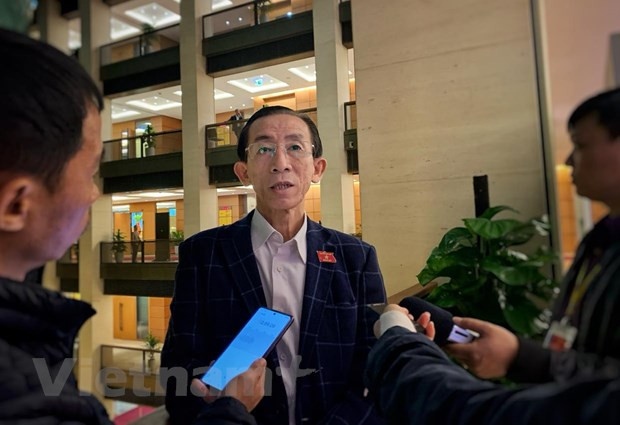 Deputy Tran Hoang Ngan talks to the media on the sidelines of the 10th session of the 14th NA (Photo: VietnamPlus)
Deputy Tran Hoang Ngan talks to the media on the sidelines of the 10th session of the 14th NA (Photo: VietnamPlus)
Laying cornerstone for e-parliament
Reforming the format of meetings illustrates that the NA always makes changes, stays flexible, and applies science - technology to keep up with the socio-economic situation for the sake of the people, NA Chairwoman Ngan told the opening sitting of the 14th parliament’s 9th session on May 20 last year.
Attending the session via videoconference, deputies shared the view that the first online sitting took place as democratically and seriously as meeting in person at the NA building, while videoconference equipment also ran smoothly.
Bui Thanh Tung, a voter in Hai Phong city, held that teleconferencing boasts more advantages than face-to-face meetings as it helps save budget, deputies from faraway provinces and cities do not have to travel much, and local leaders can also take part in online meetings.
Upholding achievements of the 9th session and in response to the complicated COVID-19 situation, the 10th session from October 20 to September 17, 2020, continued combing the virtual and in-person meeting formats, creating an important prerequisite for developing an e-parliament in the time ahead.
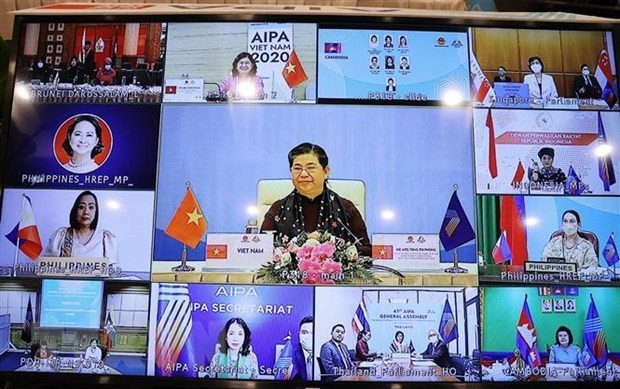 Representatives of countries attend the virtual Meeting of Women Parliamentarians of AIPA (WAIPA) on September 8, 2020 (Photo: VNA)
Representatives of countries attend the virtual Meeting of Women Parliamentarians of AIPA (WAIPA) on September 8, 2020 (Photo: VNA)
As Vietnam is moving towards the Fourth Industrial Revolution, the application of information technology, firstly by holding online NA sessions, has proved to be necessary and effective.
Both deputies and voters hope that technology will help reform the organisation of NA sessions and assist the Government and sector leaders to connect with voters, thereby accelerating the building of mechanisms and solutions and thoroughly outstanding problems. This is also an important precondition for the NA to fulfill its role to meet the people’s aspirations./.
